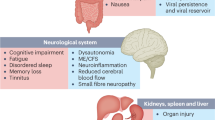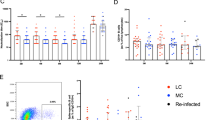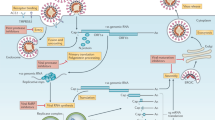Abstract
The introduction of direct acting antiviral agents (DAAs) will markedly change treatment options for individuals who have a chronic HCV infection. Within the next few months, licensing of two HCV protease inhibitors (boceprevir and telaprevir) for the treatment of patients with chronic hepatitis C as part of a triple therapy with PEG-IFN-α and ribavirin is anticipated in the USA, Europe and many other countries. Final results of pivotal phase III clinical trials in previously untreated and treatment-experienced patients with HCV genotype 1 infection were presented at the Annual Meeting of the American Association for the Study of the Liver 2010 held in Boston, MA, USA, and at the Annual Conference of the Asian Pacific Association for the Study of the Liver 2011, held in Bangkok, Thailand. This article summarizes the results of these phase III trials in consideration of accumulating data on important baseline and on-treatment predictive factors for treatment response, such as the host IL28B genotype and the rapid virologic response; the introduction of these new therapies into clinical practice is also covered. Furthermore, preliminary data on the combination of different classes of DAAs, such as HCV protease inhibitors and HCV polymerase inhibitors, without interferon α are discussed.
Key Points
-
Among host and viral factors associated with sustained virologic response, the IL28B genotype and rapid virologic response (RVR) have the strongest predictive value; RVR is crucial to response-guided therapy
-
Response-guided therapy aims to shorten treatment regimens in previously untreated patients; ∼44% and 57–65% of patients treated with boceprevir and telaprevir, respectively, qualified for shortened treatment
-
Patients with HCV genotype 1 infection and previous treatment failure benefit from triple therapies containing boceprevir or telaprevir, but most require an extended total treatment duration (up to 48 weeks)
-
The selection of HCV variants that have decreased susceptibility to direct acting antiviral agents might occur during treatment and is associated with virologic breakthrough and treatment failure
-
When administering combination therapy, careful monitoring of viral load and stringent futility rules should be used to prevent the development of multiresistant HCV strains
This is a preview of subscription content, access via your institution
Access options
Subscribe to this journal
Receive 12 print issues and online access
$209.00 per year
only $17.42 per issue
Buy this article
- Purchase on Springer Link
- Instant access to full article PDF
Prices may be subject to local taxes which are calculated during checkout





Similar content being viewed by others
References
Lauer, G. M. & Walker, B. D. Hepatitis C virus infection. N. Engl. J. Med. 345, 41–52 (2001).
Fattovich, G., Stroffolini, T., Zagni, I. & Donato, F. Hepatocellular carcinoma in cirrhosis: incidence and risk factors. Gastroenterology 127 (Suppl. 1), S35–S50 (2004).
Brown, R. S. Hepatitis C and liver transplantation. Nature 436, 973–978 (2005).
Hoofnagle, J. H. & Seeff, L. B. Peginterferon and ribavirin for chronic hepatitis C. N. Engl. J. Med. 355, 2444–2451 (2006).
Antaki, N. et al. The neglected hepatitis C virus genotypes 4, 5 and 6: an international consensus report. Liver Int. 30, 342–355 (2010).
Swain, M. G. et al. A sustained virologic response is durable in patients with chronic hepatitis C treated with peginterferon alfa-2a and ribavirin. Gastroenterology 139, 1593–1601 (2010).
Veldt, B. J. et al. Sustained virologic response and clinical outcomes in patients with chronic hepatitis C and advanced fibrosis. Ann. Intern. Med. 147, 677–684 (2007).
Pawlotsky, J. M., Chevaliez, S. & McHutchison, J. G. The hepatitis C virus life cycle as a target for new antiviral therapies. Gastroenterology 132, 1979–1998 (2007).
Manns, M. P. et al. The way forward in HCV treatment—finding the right path. Nat. Rev. Drug Discov. 6, 991–1000 (2007).
Kau, A., Vermehren, J. & Sarrazin, C. Treatment predictors of a sustained virologic response in hepatitis B and C. J. Hepatol. 49, 634–651 (2008).
Poynard, T. et al. Randomised trial of interferon α2b plus ribavirin for 48 weeks or for 24 weeks versus interferon α2b plus placebo for 48 weeks for treatment of chronic infection with hepatitis C virus. International Hepatitis Interventional Therapy Group (IHIT). Lancet 352, 1426–1432 (1998).
Manns, M. P. et al. Peginterferon alfa-2b plus ribavirin compared with interferon alfa-2b plus ribavirin for initial treatment of chronic hepatitis C: a randomised trial. Lancet 358, 958–965 (2001).
Fried, M. W. et al. Peginterferon alfa-2a plus ribavirin for chronic hepatitis C virus infection. N. Engl. J. Med. 347, 975–982 (2002).
Zeuzem, S. et al. Peginterferon alfa-2b plus ribavirin for treatment of chronic hepatitis C in previously untreated patients infected with HCV genotypes 2 or 3. J. Hepatol. 40, 993–999 (2004).
Jensen, D. M. et al. Early identification of HCV genotype 1 patients responding to 24 weeks peginterferon α-2a (40 kd)/ribavirin therapy. Hepatology 43, 954–960 (2006).
Berg, T. et al. Prediction of treatment outcome in patients with chronic hepatitis C: significance of baseline parameters and viral dynamics during therapy. Hepatology 37, 600–609 (2003).
Suppiah, V. et al. IL28B is associated with response to chronic hepatitis C interferon-α and ribavirin therapy. Nat. Genet. 41, 1100–1104 (2009).
Tanaka, Y. et al. Genome-wide association of IL28B with response to pegylated interferon-α and ribavirin therapy for chronic hepatitis C. Nat. Genet. 41, 1105–1109 (2009).
Ge, D. et al. Genetic variation in IL28B predicts hepatitis C treatment-induced viral clearance. Nature 461, 399–401 (2009).
Mangia, A. et al. An IL28B polymorphism determines treatment response of hepatitis C virus genotype 2 or 3 patients who do not achieve a rapid virologic response. Gastroenterology 139, 821–827.e1 (2010).
McCarthy, J. J. et al. Replicated association between an IL28B gene variant and a sustained response to pegylated interferon and ribavirin. Gastroenterology 138, 2307–2314 (2010).
Rauch, A. et al. Genetic variation in IL28B is associated with chronic hepatitis C and treatment failure: a genome-wide association study. Gastroenterology 138, 1338–1345.e1–7 (2010).
Rallon, N. I. et al. Interleukin-28B gene polymorphisms do not influence the susceptibility to HIV-infection or CD4 cell decline. AIDS 25, 269–271 (2010).
Pineda, J. A. et al. Prediction of response to pegylated interferon plus ribavirin by IL28B gene variation in patients coinfected with HIV and hepatitis C virus. Clin. Infect. Dis. 51, 788–795 (2010).
Fukuhara, T. et al. Variants in IL28B in liver recipients and donors correlate with response to peg-interferon and ribavirin therapy for recurrent hepatitis C. Gastroenterology 139, 1577–1585.e1–3 (2010).
Lange, C. M. et al. Impact of donor and recipient IL28B rs12979860 genotypes on hepatitis C virus liver graft reinfection. J. Hepatol. doi:10.1016/j.jhep.2010.10.037.
Thompson, A. J. et al. Interleukin-28B polymorphism improves viral kinetics and is the strongest pretreatment predictor of sustained virologic response in genotype 1 hepatitis C virus. Gastroenterology 139, 120–129.e18 (2010).
Kronenberger, B., Welsch, C., Forestier, N. & Zeuzem, S. Novel hepatitis C drugs in current trials. Clin. Liver Dis. 12, 529–555 (2008).
Kwo, P. Y. et al. Efficacy of boceprevir, an NS3 protease inhibitor, in combination with peginterferon alfa-2b and ribavirin in treatment-naive patients with genotype 1 hepatitis C infection (SPRINT-1): an open-label, randomised, multicentre phase 2 trial. Lancet 376, 705–716 (2010).
Sarrazin, C. et al. SCH 503034, a novel hepatitis C virus protease inhibitor, plus pegylated interferon α-2b for genotype 1 nonresponders. Gastroenterology 132, 1270–1278 (2007).
Poordad, F. et al. Boceprevir (BOC) combined with peginterferon alfa-2b/ribavirin (P/R) for treatment-naïve patients with hepatitis C virus (HCV) genotype (G) 1: SPRINT-2 final results [abstract LB-4]. Hepatology 52 (Suppl. 1), 402A (2010).
Bronowicki, J. P. et al. Response-guided therapy (RGT) with boceprevir (BOC) + peginterferon alfa-2b/ribavirin (P/R) for treatment-naïve patients with hepatitis C virus (HCV) genotype (G) 1 was similar to a 48-wk fixed-duration regimen with BOC + P/R in SPRINT-2 [abstract LB-15]. Hepatology 52 (Suppl. 1), 881A (2010).
Muir, A. J., Bornstein, J. D. & Killenberg, P. G. for the Atlantic Coast Hepatitis Treatment Group. Peginterferon alfa-2b and ribavirin for the treatment of chronic hepatitis C in blacks and non-Hispanic whites. N. Engl. J. Med. 350, 2265–2271 (2004).
Hézode, C. et al. Telaprevir and peginterferon with or without ribavirin for chronic HCV infection. N. Engl. J. Med. 360, 1839–1850 (2009).
Forestier, N. et al. Antiviral activity of telaprevir (VX-950) and peginterferon alfa-2a in patients with hepatitis C. Hepatology 46, 640–648 (2007).
Lawitz, E. et al. Antiviral effects and safety of telaprevir, peginterferon alfa-2a, and ribavirin for 28 days in hepatitis C patients. J. Hepatol. 49, 163–169 (2008).
Jacobson, I. et al. Telaprevir in combination with peginterferon and ribavirin in genotype 1 HCV treatment-naïve patients: final results of phase 3 ADVANCE study [abstract 211]. Hepatology 52 (Suppl. 1), 427A (2010).
Sherman, K. E. et al. Telaprevir in combination with peginterferon alfa2a and ribavirin for 24 or 48 weeks in treatment-naïve genotype 1 HCV patients who achieved an extended rapid viral response: final results of phase 3 ILLUMINATE study [abstract LB-2]. Hepatology 52 (Suppl. 1), 401A (2010).
Jensen, D. M. et al. Re-treatment of patients with chronic hepatitis C who do not respond to peginterferon-α2b: a randomized trial. Ann. Intern. Med. 150, 528–540 (2009).
Poynard, T. et al. Peginterferon alfa-2b and ribavirin: effective in patients with hepatitis C who failed interferon alfa/ribavirin therapy. Gastroenterology 136, 1618–1628.e2 (2009).
McHutchison, J. G. et al. Telaprevir for previously treated chronic HCV infection. N. Engl. J. Med. 362, 1292–1303 (2010).
Bacon, B. R. et al. HCV RESPOND-2 final results: high sustained virologic response among genotype 1 previous non-responders and relapsers to peginterferon/ribavirin when re-treated with boceprevir plus PEGINTRON (Peginterferon alfa-2b)/ribavirin [abstract 216]. Hepatology 52 (Suppl. 1), 430A (2010).
Foster, G. R. et al. Telaprevir-based therapy in G1 HCV-infected patients with prior null response, partial response or relapse to peginterferon/ribavirin: REALIZE trial final results [abstract PS02-04]. Hepatol. Int. 5, 14 (2011).
Monto, A. et al. Lessons from HIV therapy applied to viral hepatitis therapy: summary of a workshop. Am. J. Gastroenterol. 105, 989–1004 (2010).
Welsch, C. et al. Molecular basis of telaprevir resistance due to V36 and T54 mutations in the NS3–4A protease of the hepatitis C virus. Genome Biol. 9, R16 (2008).
Sarrazin, C. & Zeuzem, S. Resistance to direct antiviral agents in patients with hepatitis C virus infection. Gastroenterology 138, 447–462 (2010).
Kieffer, T. L. et al. Telaprevir and pegylated interferon-alpha-2a inhibit wild-type and resistant genotype 1 hepatitis C virus replication in patients. Hepatology 46, 631–639 (2007).
Zeuzem, S. et al. Long-term follow-up of patients with chronic hepatitis C treated with telaprevir in combination with peginterferon alfa-2a and ribavirin: interim analysis of the EXTEND study [abstract 227]. Hepatology 52 (Suppl. 1), 436A (2010).
Vierling, J. M. et al. Frequencies of resistance-associated amino acid variants following combination treatment with boceprevir plus PEGINTRON (peginterferon alfa-2b)/ribavirin in patients with chronic hepatitis C (CHC), genotype 1 (G1) [abstract 801]. Hepatology 52 (Suppl. 1), 702A (2010).
Clark, P. J., Thompson, A. J. & McHutchison, J. G. IL28B genomic-based treatment paradigms for patients with chronic hepatitis C infection: the future of personalized HCV therapies. Am. J. Gastroenterol. 106, 38–45 (2011).
Serfaty, L. et al. No impact of insulin resistance on antiviral efficacy of telaprevir-based regimen in HCV genotype 1 treatment-naive patients: sub-analysis of C208 study [abstract 805]. Hepatology 52 (Suppl. 1), 705A (2010).
Peveling-Oberhag, J., Zeuzem, S. & Hofmann, W. P. Antiviral therapy of chronic hepatitis C in patients with advanced liver disease and after liver transplantation. Med. Microbiol. Immunol. 199, 1–10 (2010).
Gane, E. J. et al. Oral combination therapy with a nucleoside polymerase inhibitor (RG7128) and danoprevir for chronic hepatitis C genotype 1 infection (INFORM-1): a randomised, double-blind, placebo-controlled, dose-escalation trial. Lancet 376, 1467–1475 (2010).
Zeuzem, S. et al. Dual, triple, and quadruple combination treatment with a protease inhibitor (GS-9256) and a polymerase inhibitor (GS-9190) alone and in combination with ribavirin (RBV) or PegIFN/RBV for up to 28 days in treatment naïve, genotype 1 HCV subjects [abstract LB-1]. Hepatology 52 (Suppl. 1), 400A (2010).
Hofmann, W. P., Herrmann, E., Sarrazin, C. & Zeuzem, S. Ribavirin mode of action in chronic hepatitis C: from clinical use back to molecular mechanisms. Liver Int. 28, 1332–1343 (2008).
Feld, J. J. & Hoofnagle, J. H. Mechanism of action of interferon and ribavirin in treatment of hepatitis C. Nature 436, 967–972 (2005).
Hofmann, W. P. et al. Impact of ribavirin on HCV replicon RNA decline during treatment with Interferon alfa and the protease inhibitors boceprevir or telaprevir [abstract 1871]. Hepatology 52 (Suppl. 1), 1210A (2010).
Zeuzem, S. et al. Strong antiviral activity and safety of IFN-sparing treatment with the protease inhibitor BI 201335, the HCV polymerase inhibitor BI 207127 and ribavirin in patients with chronic hepatitis C [abstract LB-7]. Hepatology 52 (Suppl. 1), 876A (2010).
Lok, A. S. et al. Combination therapy with BMS-790052 and BMS-650032 alone or with pegIFN/RBV results in undetectable HCV RNA through 12 weeks of therapy in HCV genotype 1 null responders [abstract LB-8]. Hepatology 52 (Suppl. 1), 877A (2010).
Akuta, N. et al. Amino acid substitution in hepatitis C virus core region and genetic variation near the interleukin 28B gene predict viral response to telaprevir with peginterferon and ribavirin. Hepatology 52, 421–429 (2010).
Acknowledgements
W. P. Hofmann and S. Zeuzem receive funding from the Deutsche Forschungsgemeinschaft (grant KFO129).
Author information
Authors and Affiliations
Contributions
Both authors contributed equally to all aspects of this article.
Corresponding author
Ethics declarations
Competing interests
W. P. Hofmann has been a speaker for Bristol-Myers Squibb, Gilead, Merck and Roche, and has received grant/research support from Roche. S. Zeuzem has been a consultant for Abbott, Achillion, Anadys, Bristol-Myers Squibb, Gilead, Itherx, Merck, Novartis, Pfizer, Pharmasset, Roche, Santaris, Tibotec and Vertex. S. Zeuzem has been a speaker for Bristol-Myers Squibb, Gilead, Merck, Novartis and Roche.
Rights and permissions
About this article
Cite this article
Hofmann, W., Zeuzem, S. A new standard of care for the treatment of chronic HCV infection. Nat Rev Gastroenterol Hepatol 8, 257–264 (2011). https://doi.org/10.1038/nrgastro.2011.49
Published:
Issue Date:
DOI: https://doi.org/10.1038/nrgastro.2011.49
This article is cited by
-
Thrombotic thrombocytopenic purpura in a patient on long-term alpha-interferon therapy for essential thrombocythemia: a case report
BMC Nephrology (2023)
-
Patients receiving opioid maintenance treatment in primary care: successful chronic hepatitis C care in a real world setting
BMC Infectious Diseases (2013)
-
Regulation of hepatic innate immunity by hepatitis C virus
Nature Medicine (2013)
-
Role of Interleukin-28B Polymorphism as a Predictor of Sustained Virological Response in Patients with Chronic Hepatitis C Treated with Triple Therapy: A Systematic Review and Meta-Analysis
Clinical Drug Investigation (2013)
-
Polymorphisms in histone deacetylases improve the predictive value of IL-28B for chronic hepatitis C therapy
Genes & Immunity (2013)



